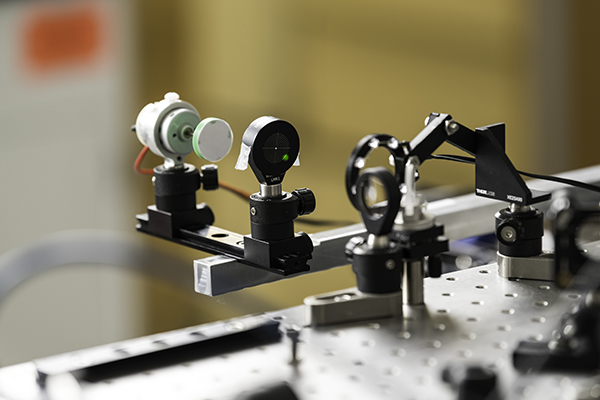Minor Requirements
Craft Your Optics Minor to Suit Your Interests

Get an Edge with Optics
Optical sciences and technologies have great importance in a range of fields and applications. A stronger grasp of the field is a desirable option, particularly for majors in other science and engineering disciplines.
Our optics minors get a broad introduction to optics while also being able to customize their own minor, choosing any two 200 level courses from the Institute’s offerings.
Required Courses
Students minoring in optics must earn a C or better in five optics courses, one of which must be laboratory-based.
Complete both required optics courses:
- OPT 241: Geometrical Optics
- OPT 261: Interference and Diffraction
Plus one of following optics labs:
- OPT 201: Geometrical Optics Lab
- OPT 202: Physical Optics Lab
- OPT 203: Instrumentation Lab
- OPT 204: Sources and Detectors Lab
- Independent research for credit*
Plus two 200-level, four-credit optics (with the exception of OPT 287).
Note: Most 200-level optics classes have pre-requisites in math and/or physics that must also be satisfied, unless permission of the instructor is obtained.
*Paid internships do not qualify as independent research.
How to Declare an Optics Minor
Students interested in declaring a minor in optics should meet with a faculty member of the Institute of Optics to plan a focused program of study.
The following faculty members are authorized to approve proposed minor course plans:
Students with general questions about minoring in optics may contact the optics program manager, Cynthia Daher by email at cynthiadaher@rochester.edu.
